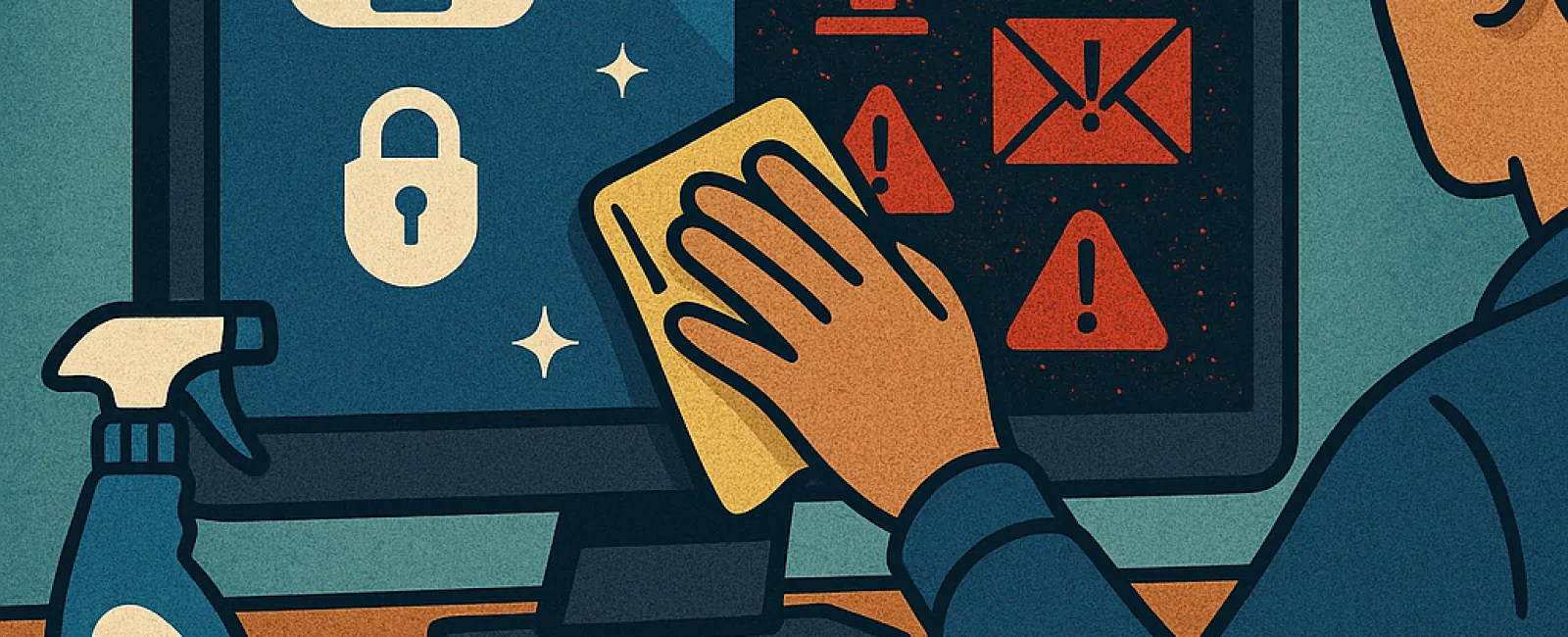September 08, 2025
Protecting your business from cyber threats starts with mastering the fundamentals. According to IBM's 2023 Cost Of A Data Breach Report, an alarming 82% of data breaches involved cloud-stored information. Most of these incidents could have been avoided by implementing simple, essential security measures.
Think of "cyber hygiene" as your business's daily routine for digital cleanliness—much like handwashing. It might not be glamorous, but it's absolutely critical. Neglecting these basics invites serious risks.
Here are four must-have cyber hygiene practices every small business needs to master:
1. Secure Your Network Thoroughly.
Protect your internet connection by encrypting sensitive business data and deploying a robust firewall. Safeguard your WiFi by hiding its Service Set Identifier (SSID) to prevent broadcasting your network name, and always secure your router with a strong password. For remote workers, enforce the use of a virtual private network (VPN) to ensure secure connections from anywhere.
2. Empower Your Team with Security Knowledge.
Implement clear security policies to minimize risks caused by human error. Encourage strong password habits, enforce multifactor authentication (MFA), establish proper internet usage guidelines, and create protocols for handling sensitive data. Train employees to identify phishing attempts and avoid risky downloads.
3. Regularly Back Up Critical Data.
In case of cyberattacks, system crashes, or ransomware, having backups ensures your vital data remains accessible and your business keeps running. Schedule automatic backups for essential files such as documents, spreadsheets, HR records, financial data, and databases. Store these backups securely in the cloud or at an offsite location.
4. Restrict Access to Sensitive Information.
Limit data access strictly to necessary personnel to reduce exposure. Even if a breach occurs, restricted access helps protect your most sensitive information. Assign data permissions based on job roles, restrict administrative privileges to trusted IT staff and key employees, and promptly remove access for former staff during offboarding.
Investing in Security Saves You from Greater Losses
Though these steps may seem time-consuming, they are far less costly than dealing with the aftermath of a data breach or ransomware attack that could cripple your business.
Ready to Stay One Step Ahead of Cyber Threats?
If you're uncertain about your current security posture, now is the perfect moment to evaluate it. Our free Discovery Call provides a comprehensive assessment to uncover hidden vulnerabilities, pinpoint defense gaps, and deliver a clear, actionable plan to enhance your cyber hygiene swiftly. Click here or call us at 907-865-3100 to schedule your Discovery Call today.




